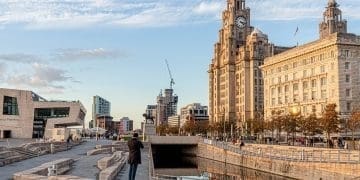On Wednesday 23 November, Britain’s highest court rejected a bid by the devolved Scottish government in Edinburgh to hold a new referendum on independence without London’s consent.
We must and we will find another democratic, lawful and constitutional means by which the Scottish people can express their will. In my view, that can only be an election.
Mandate
The Supreme Court’s Scottish president, Robert Reed, said the power to call a referendum was “reserved” for the UK parliament under Scotland’s devolution settlement. Reed said that, therefore:
the Scottish parliament does not have the power to legislate for a referendum on Scottish independence.
Sturgeon’s SNP-led government in Edinburgh wanted to hold a vote next October on the question: “Should Scotland be an independent country?” The UK government, which oversees constitutional affairs for the whole country, has repeatedly refused to give Edinburgh the power to hold a referendum. It considers that the last one – in 2014, when 55 percent of Scots rejected independence – settled the question for a generation.
However, Sturgeon and her party say there is now an “indisputable mandate” for another independence referendum, particularly in light of the UK’s departure from the European Union. Most voters in Scotland opposed Brexit. Scotland’s last parliamentary election returned a majority of pro-independence lawmakers for the first time. Opinion polls, however, indicate only a slight lead for those in favour of a split.
At the UK Supreme Court last month, lawyers for the government in London argued that the Scottish government could not decide to hold a referendum on its own. Permission had to be granted because the constitutional make-up of the four nations of the United Kingdom was a reserved matter for the government in London.
“Right to self-determination”
Lawyers for the Scottish government wanted a ruling on the rights of the devolved parliament in Edinburgh if London continued to block an independence referendum.
Lord Advocate Dorothy Bain, Scotland’s top law officer, said Scottish independence was a “live and significant” issue in Scottish politics. The Scottish government was seeking to create its own legal framework for another referendum, arguing that the “right to self-determination is a fundamental and inalienable right”.
However, the Supreme Court rejected international comparisons raised by the SNP. Reed said that international law on self-determination only applied to former colonies, or where people are oppressed by military occupation, or when a defined group is denied its political and civil rights. He concluded that none of that applied to Scotland. He also rejected the SNP’s argument that a referendum would only be “advisory” and not legally binding. Any such vote would carry “important political consequences” regardless of its legal status, the judge said.
However, there was robust argument against this on social media. Economic justice campaigner Richard Murphy argued that there was a political element to the Supreme Court’s decision:
The decision goes against Scotland because it was not a colony and apparently its people are not oppressed by being denied the right to self determination. Legally the Supreme Court agree that a referendum could be held: politically they deny it. Shocking.
— Richard Murphy (@RichardJMurphy) November 23, 2022
Yes Cymru, a campaign for Welsh independence, shared their dismay:
Democracy is dead on these islands.
The refusal to grant a basic right to the citizens of Scotland is the final nail.
In the clear light of day it is apparent to all that all our future plights are determined by the cosy Westminster establishment. Nothing more.#IndyRef2 🏴🏴— YesCymru 🏴 (@YesCymru) November 23, 2022
.@Ianblackford_MP: "This morning the Supreme Court clarified a point of law – but the very point of democracy in this Union is now at stake.
And democracy will not be denied." #PMQs #IndyRef2 pic.twitter.com/MABrmidsgg
— The SNP (@theSNP) November 23, 2022
Featured image by Wikimedia Commons/The Scottish Government via CC 2.0, cropped to 770×403
Additional reporting by Agence France-Presse









